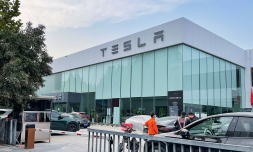In a world where wealth shapes everything, even the human gene pool isn’t safe from billionaire influence.
I’m approaching this topic with apprehension, because in all honesty I don’t want to give Elon Musk more air time. The billionaire has infiltrated almost every aspect of our daily lives, sitting head of the table across the trifecta; capitalism, patriarchy, and politics.
This new breed of the ultra rich, seemingly insatiable for power and successful at achieving it, is casting an increasingly heavy shadow. Jeff Bezos infamously sent a group of women to space for 11 minutes to market his space company Blue Origin – as the billionaire space race continues to amp up. And Elon Musk has now found himself at the heart of the White House as one of President Trump’s ostensibly valued advisors.
The reason I’m harping on about Musk is because these grotesque shows of wealth and influence are no longer headline fodder. It’s not a case of eye-rolling at the ridiculous ways the super rich choose to spend their endless time and money. Now we’re seeing our societal make-up, the environment, and even the universe shaped by the inane actions of the world’s wealthiest men.
And Elon Musk is not just building cars, launching rockets, and gutting social media platforms.
Musk has an undisclosed number of children, likely far surpassing the 14 already known. In interviews and online screeds, Musk has often mused about the so-called ‘population collapse,’ a fantasy apocalypse for tech moguls terrified of declining birth rates and the fall of the West.
The Wall Street Journal recently uncovered allegations that Musk recruits mothers through private channels, sometimes even via X, and allegedly manages them like employees in a ‘meritocracy,’ rewarding compliance and punishing visibility.
Influencer Ashley St. Clair, now in a paternity dispute, reportedly signed an NDA before conceiving her child with Musk. She’s the latest in a long line of women to claim Musk as the father of her young child.
Others have accepted money to stay silent. For the women involved, the ethical territory is bleak. They are both participants and prisoners in a billionaire’s eugenics cosplay – paid not just for their silence, but for complicity in building a private lineage whose full extent they, and perhaps even Musk himself, may never fully know.
The Tesla founder’s children are an extension of his financial assets. The Republican right, once obsessed with traditional patriarchs (men who disciplined, ruled, and provided) has a new avatar in Musk.




















